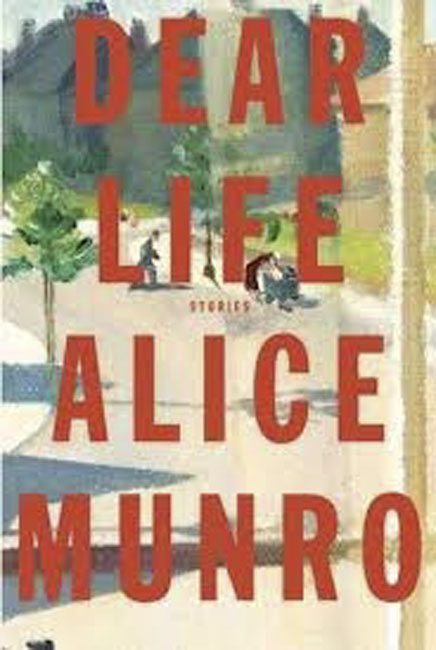At age 81, Alice Munro’s preoccupations as a writer have scarcely changed from what they were in the bold, raw work of her early career.
In her collection of short stories, “Dear Life,” isolated, ambitious, unusual and almost exclusively female protagonists grapple with love, parenting and marriage in the grand desolation of rural Canada. Munro does not write about these capital-letter topics as they are commonly served, steeped in cultural distortions, but as they are experienced: love as it is felt, gripping and improbable; motherhood, so far as it is managed; and marriage as it is, more often than not, endured. As a writer, Munro is understated, controlled and wary of metaphor. Her legacy is one of depth, precision and, perhaps, even perfection.
She has a knack of rendering “ordinary” lives so artfully that they become singular, thick with their own meanings. In “To Reach Japan,” for example, one understands instinctively how a mother’s mind would reel with what-ifs after losing track of her child, how a particular sort of young man befriends children “to test [his] own charms,” and how an anonymous poet might feel more comfortable at a party full of boring engineers than at a gathering of her fellow writers.
Though the geographic scope of Munro’s work has not altered as she has aged, the chronologies of her stories have lengthened to span lifetimes. Stories in “Dear Life” often begin in a time when “having any serious idea,” as a woman, “let alone ambition, could be seen as suspect, having something to do with your child getting pneumonia,” and extend into a near-present landscape of retirement homes and high-rise apartments.
One of the pleasures of reading Munro’s short stories is experiencing their unpredictability. In long-reaching narratives like “Amundsen” and “Train,” Munro moves unhurriedly, and often non-sequentially, through the twists and unexpected turns of real lives. In “Train,” the reticent protagonist, now middle-aged, sees a beautiful grey-haired woman at the hotel where he works. Readers learn, after 20-odd pages of unrelated story, that this lady is an old sweetheart who he abandoned in the pivotal decision of his life.
Unlike the first few stories of the collection, which are vivid in their precision, Munro’s vision in some of the later stories feels zoomed out, though still in-focus. In “Gravel” and “Haven,” first-person narrators grope back through vast swathes of time to ruminate on events from their childhood. This narrative style presents, at times, more of an impediment than an entry point to Munro’s glimmering, snow-shagged world.
The last four works of the collection make up a separate section that is, according to Munro, “autobiographical in feeling.” Munro writes that these “not quite stories” are, “the first and last — and the closest things I have to say about my own life.” Though written from the same distant vantage point as “Gravel” and “Haven,” these stories hum with a richness that those fictional stories lack.
Munro rejects the sometimes too-tidy purposefulness of the short story in these nearly autobiographical works, weaving together loosely related anecdotes about her vexatious mother, blue-collar father, her gutsy maid, Sadie, and a prostitute whose vivacity thrills Munro’s young female narrator. When a neighbor enters briefly into one such anecdote, Munro comments on the divergence of fiction and biography: “Roly Grain, his name was, and he does not have any further part in what I’m writing now, in spite of his troll’s name, because this is not a story, only life.”
Printed on Monday, November 19, 2012 as: Short stories span across lifetimes















